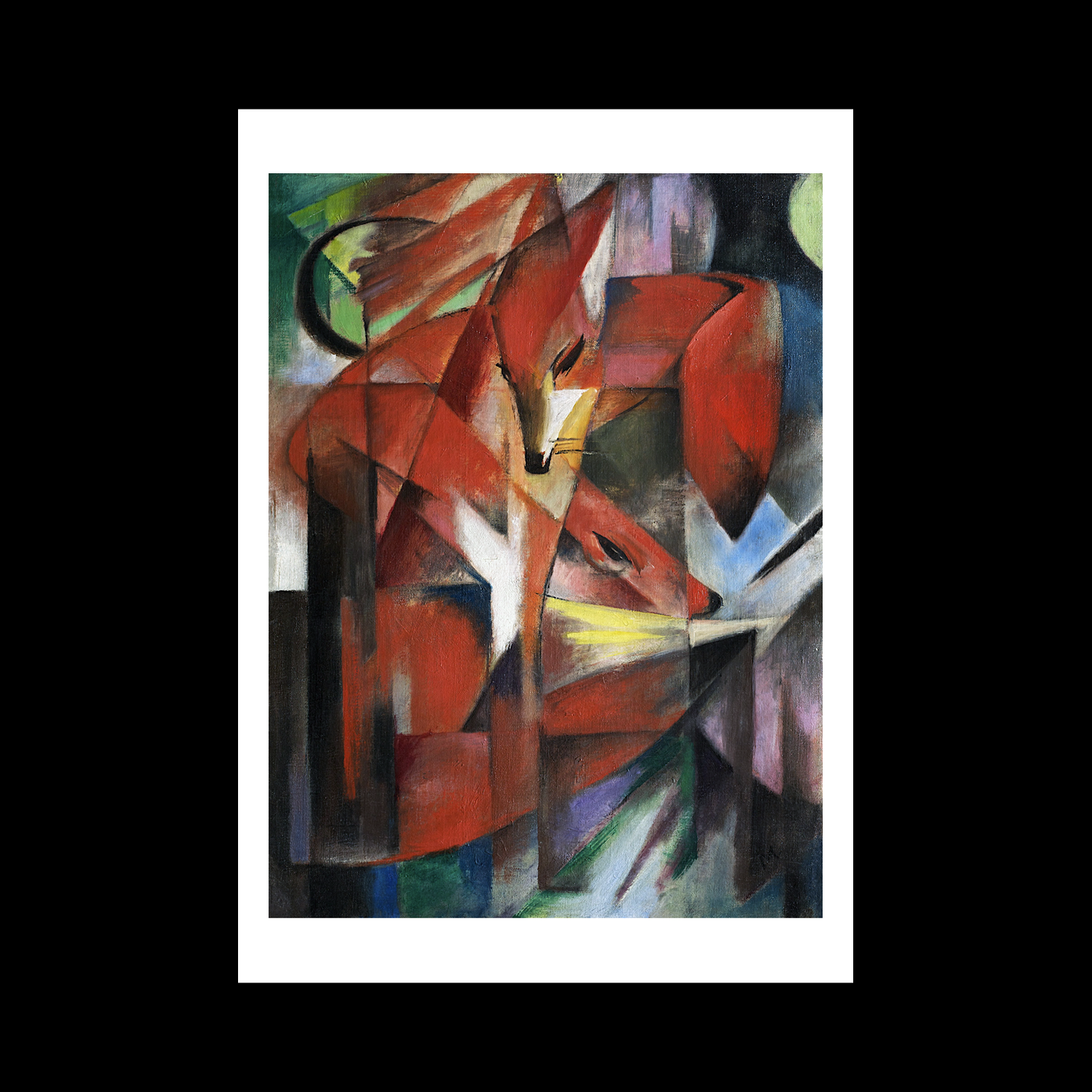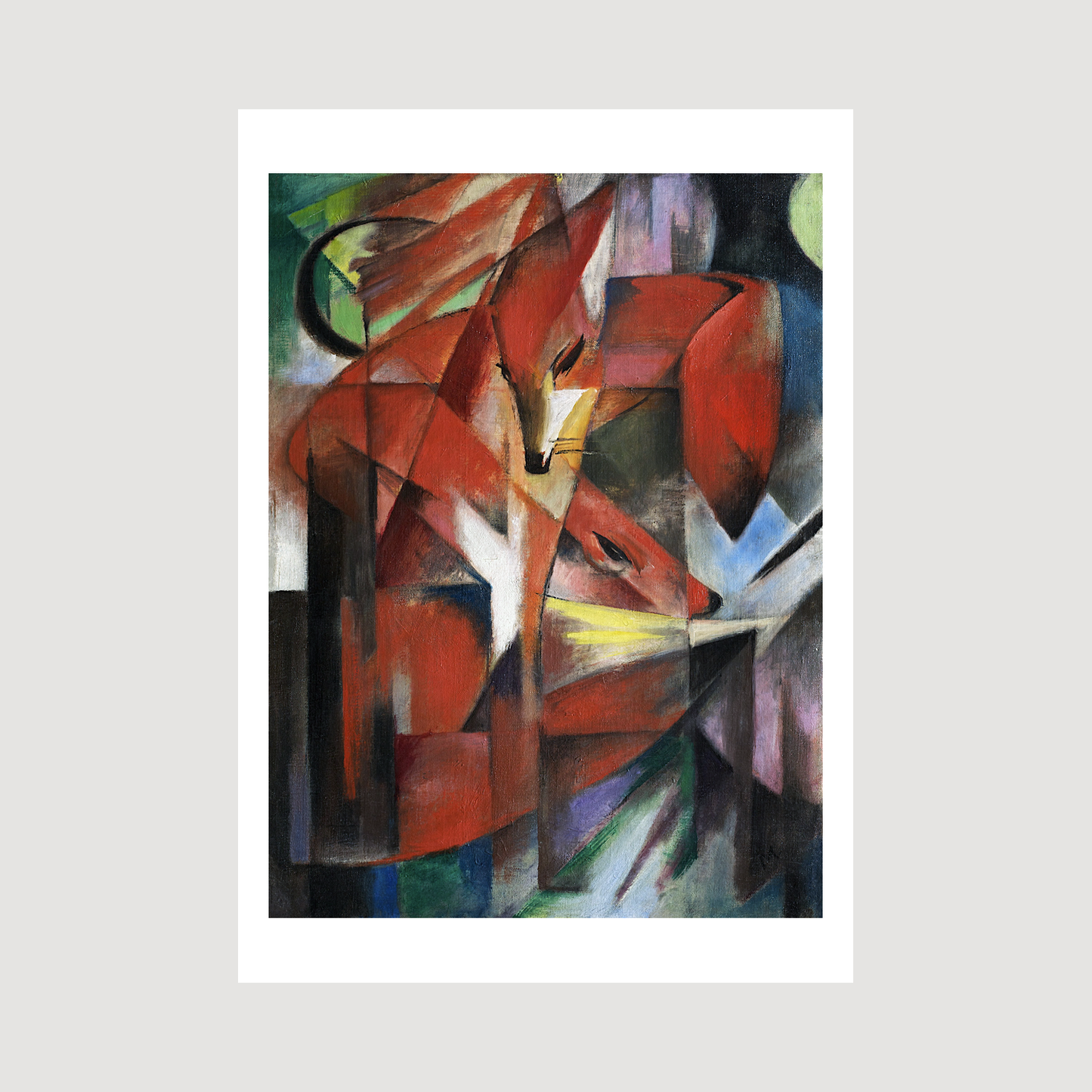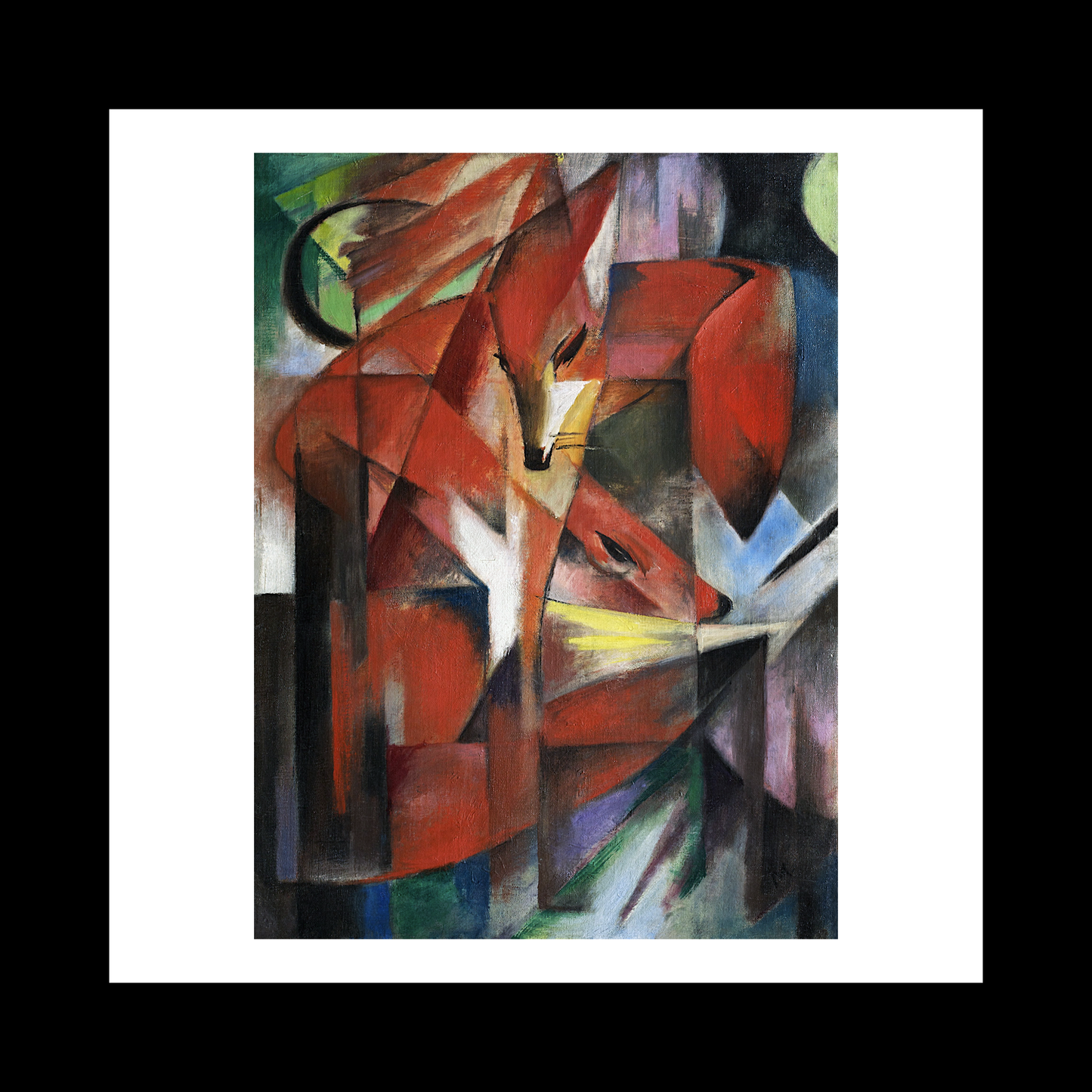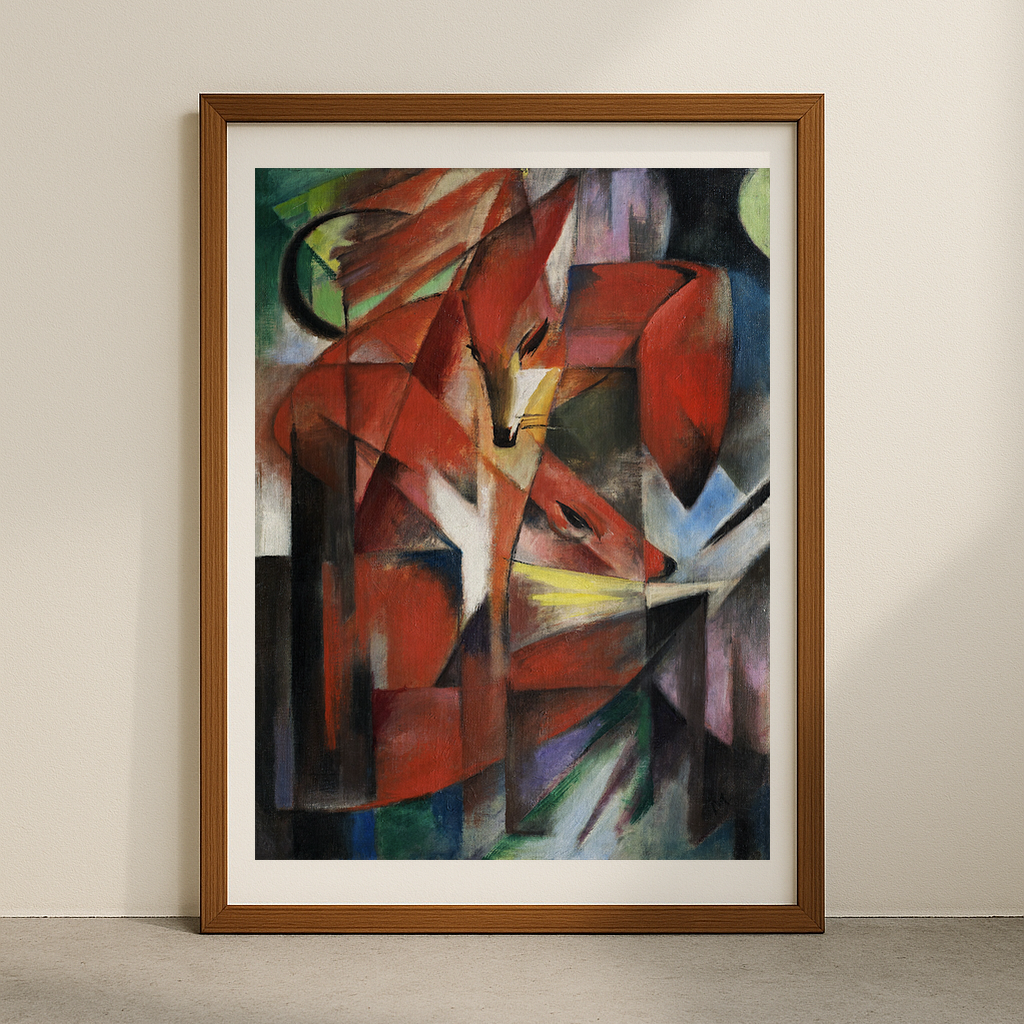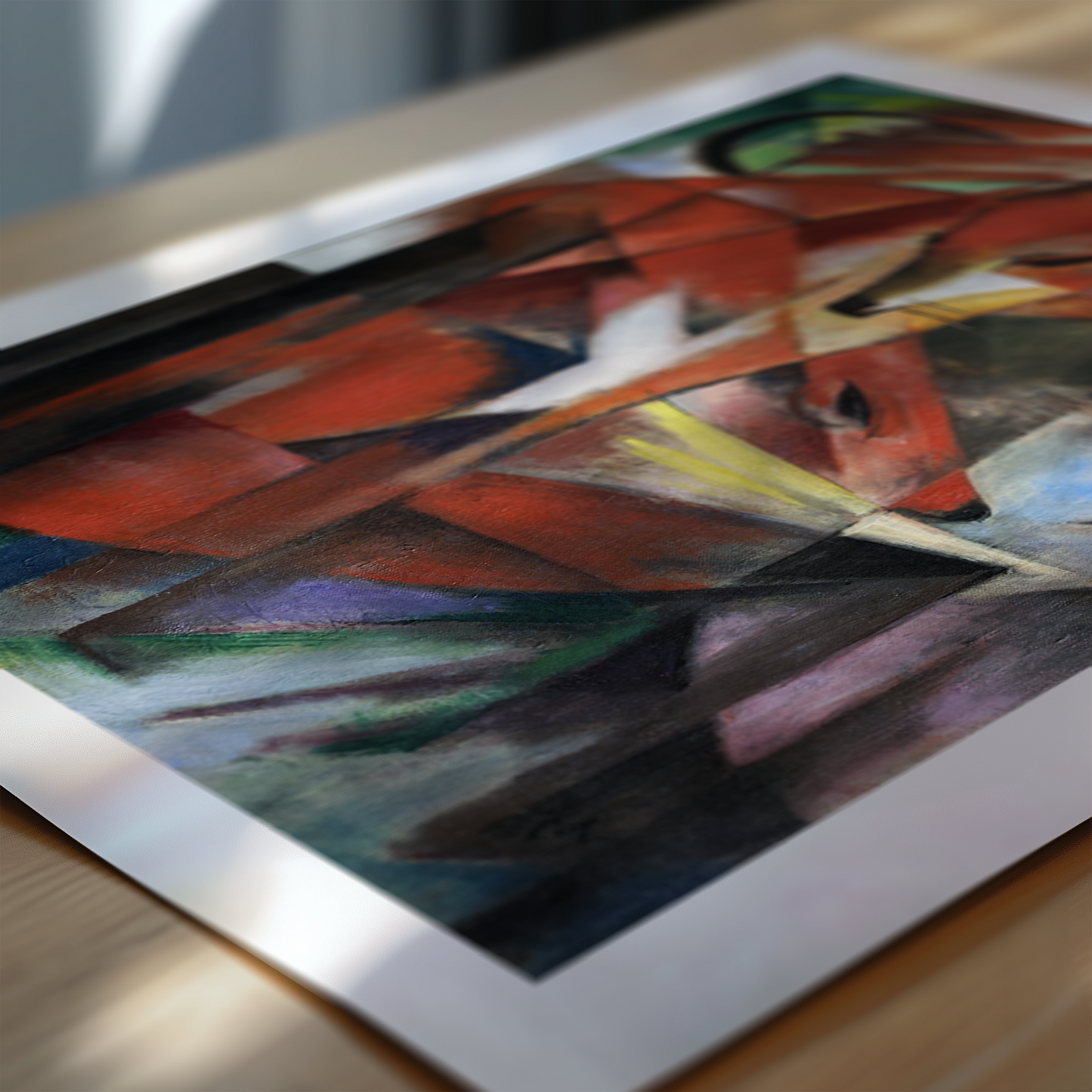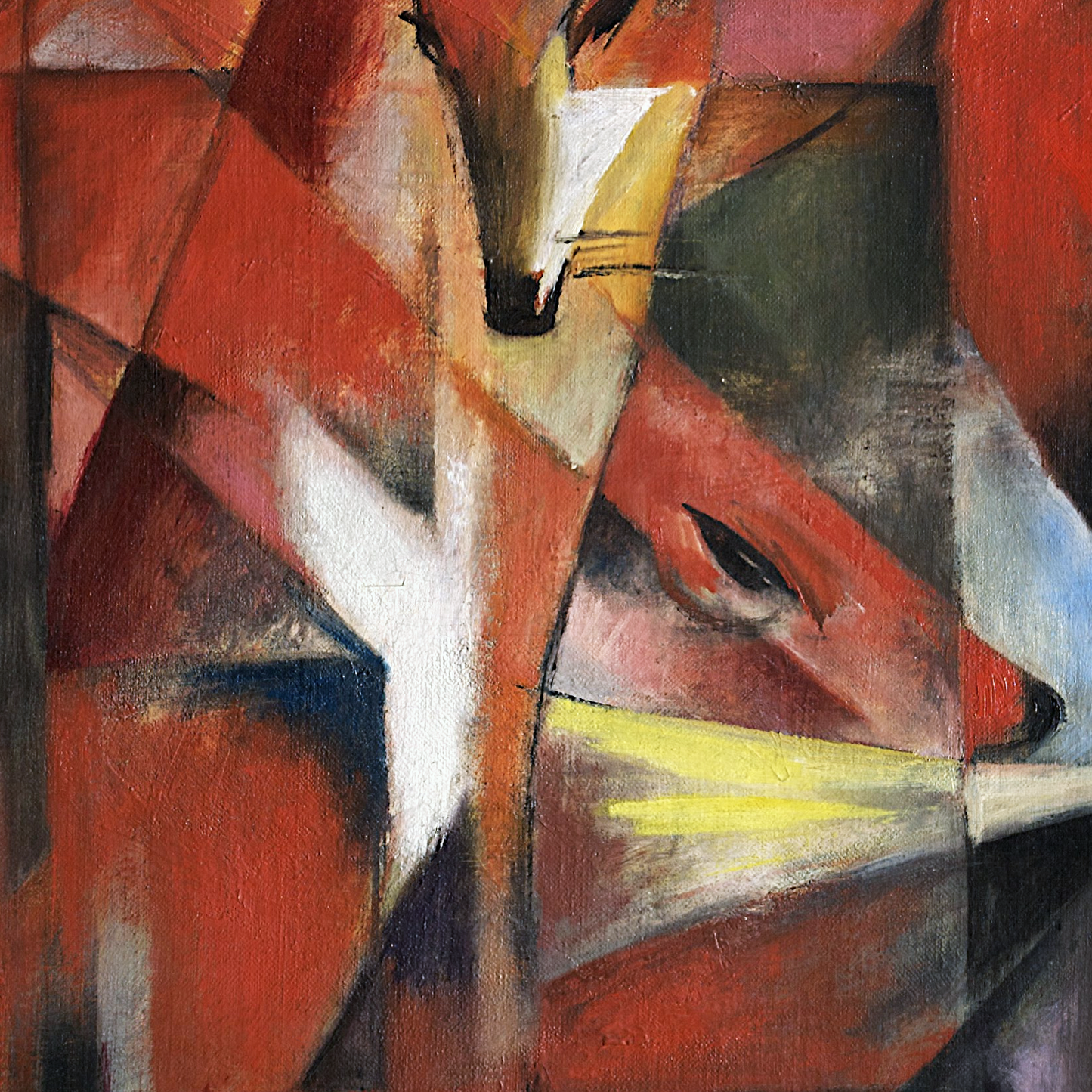1
/
of
6
Franz Marc's Foxes (1913) famous
Franz Marc's Foxes (1913) famous
Regular price
£12.45 GBP
Regular price
Sale price
£12.45 GBP
Taxes included.
Quantity
Couldn't load pickup availability
Franz Marc's "The Foxes" (1913) stands as a striking example of German Expressionism, showcasing Marc's distinctive approach to colour and form. The painting depicts two foxes in a dynamic composition of angular shapes and bold, vibrant hues. Marc employs his characteristic blue, red, and yellow palette to create a sense of movement and emotional intensity, with the foxes' bodies fragmenting into geometric forms that seem to merge with their environment.
Marc created this work during a pivotal period in his artistic development, just before the outbreak of World War I. His fascination with animals stemmed from his belief that they possessed a spiritual purity that humans had lost. The foxes, rendered in prismatic shapes and intense colours, reflect Marc's unique philosophy of depicting animals not as they appear physically, but as he perceived their inner essence. The angular treatment and fractured planes also show the influence of Cubism, which was revolutionising European art at the time.
The painting exemplifies Marc's contribution to Der Blaue Reiter (The Blue Rider) movement, which he co-founded with Wassily Kandinsky. The work's abstracted forms and emotional use of colour demonstrate how Marc moved beyond naturalistic representation to explore deeper spiritual and psychological themes. Tragically, this painting was created just three years before Marc's death in the Battle of Verdun, making it one of his final major works. His innovative approach to animal subjects and use of colour theory continues to influence contemporary artists, while this particular piece captures the artistic experimentation and spiritual searching that characterised pre-war European modernism.
View full details
Marc created this work during a pivotal period in his artistic development, just before the outbreak of World War I. His fascination with animals stemmed from his belief that they possessed a spiritual purity that humans had lost. The foxes, rendered in prismatic shapes and intense colours, reflect Marc's unique philosophy of depicting animals not as they appear physically, but as he perceived their inner essence. The angular treatment and fractured planes also show the influence of Cubism, which was revolutionising European art at the time.
The painting exemplifies Marc's contribution to Der Blaue Reiter (The Blue Rider) movement, which he co-founded with Wassily Kandinsky. The work's abstracted forms and emotional use of colour demonstrate how Marc moved beyond naturalistic representation to explore deeper spiritual and psychological themes. Tragically, this painting was created just three years before Marc's death in the Battle of Verdun, making it one of his final major works. His innovative approach to animal subjects and use of colour theory continues to influence contemporary artists, while this particular piece captures the artistic experimentation and spiritual searching that characterised pre-war European modernism.
